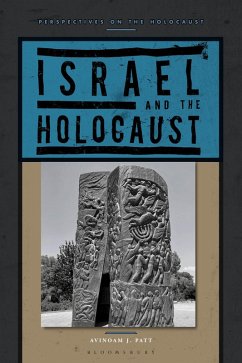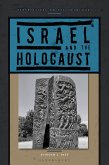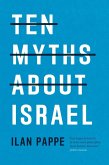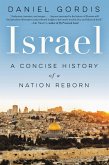Avinoam Patt examines the relationship between two of the most significant events in modern Jewish history, the Holocaust and the creation of the state of Israel. While there may be no direct causal connection between the Holocaust and the founding of the Jewish state in 1948, the memory of the Holocaust has been a constant presence in Israeli politics, culture, and society since even before 1948.
The State of Israel has always existed in an uneasy relationship with the Shoah. On the one hand, Israel was faced with the challenge of taking in hundreds of thousands of Holocaust survivors as new citizens of the state, many of whom were discouraged from sharing their traumatic wartime experiences with their fellow citizens. On the other hand, the destruction of European Jewry and the failure of Western democracy to protect the Jewish minority in Europe seemed to vindicate the Zionist worldview, even as classical Zionism argued that the Jewish people deserved a state on the basis of their deep historical connection to the Land of Israel. By tracing the evolving relationship to the memory of Shoah, Avinoam Patt argues, we can also trace shifting conceptions of Israeli self-understanding and identity, Israel's relationship to the wider world, its neighbors, the Jewish Diaspora, and the Jewish past. Israel and the Holocaust documents these tensions and analyses the changing nature of Israel's relationship to the Shoah, revealing that it only seems to strengthen with the passage of time.
The State of Israel has always existed in an uneasy relationship with the Shoah. On the one hand, Israel was faced with the challenge of taking in hundreds of thousands of Holocaust survivors as new citizens of the state, many of whom were discouraged from sharing their traumatic wartime experiences with their fellow citizens. On the other hand, the destruction of European Jewry and the failure of Western democracy to protect the Jewish minority in Europe seemed to vindicate the Zionist worldview, even as classical Zionism argued that the Jewish people deserved a state on the basis of their deep historical connection to the Land of Israel. By tracing the evolving relationship to the memory of Shoah, Avinoam Patt argues, we can also trace shifting conceptions of Israeli self-understanding and identity, Israel's relationship to the wider world, its neighbors, the Jewish Diaspora, and the Jewish past. Israel and the Holocaust documents these tensions and analyses the changing nature of Israel's relationship to the Shoah, revealing that it only seems to strengthen with the passage of time.
Reaction to the Holocaust has played an important part in Israel. This work examines the complexity of Israeli reactions in thought and politics over the past eighty years, and places them solidly into their social and political contexts. Aubrey Newman, Emeritus Professor of History at the University of Leicester, UK









